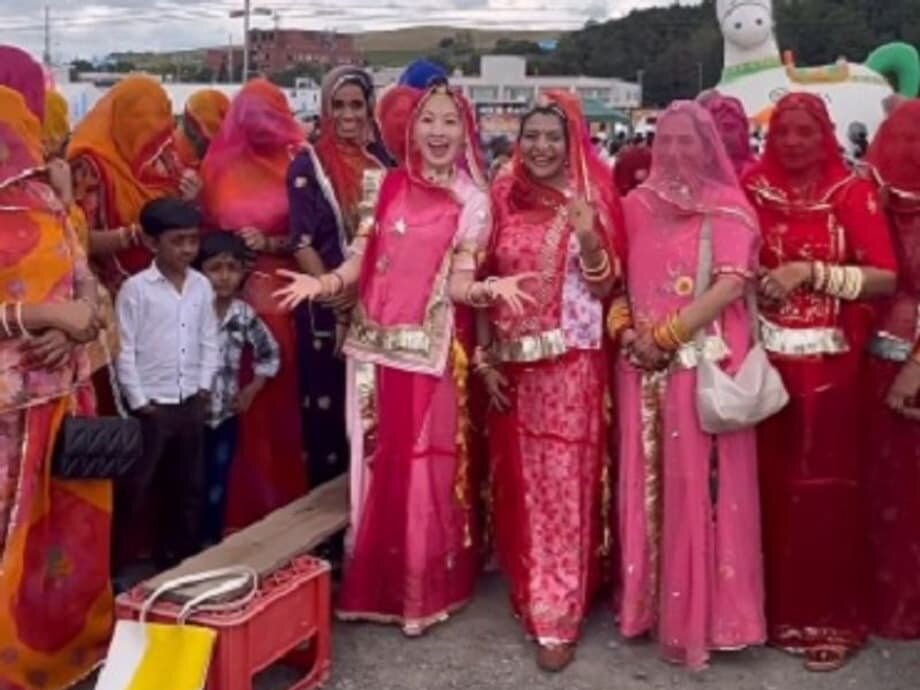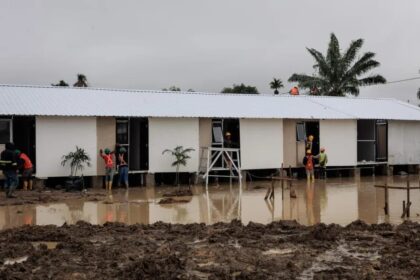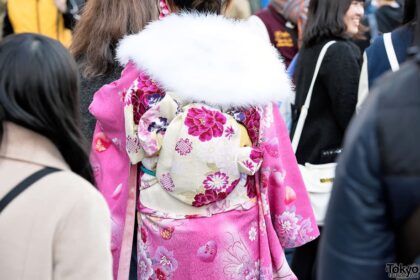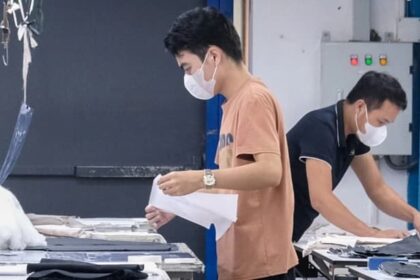Rajasthan in the Heart of Hokkaido: How Indian Culture Thrives in Japan’s Urakawa Cho
In the northernmost reaches of Japan, nestled amid the serene landscapes of Hokkaido, lies the small town of Urakawa Cho. At first glance, it appears to be a typical Japanese town, known for its tranquil beauty and renowned horse culture. Yet, a closer look reveals a vibrant tapestry of Indian traditions, particularly those from Rajasthan, woven seamlessly into the fabric of daily life. This unlikely fusion has turned Urakawa Cho into a living testament to the power of cultural preservation and exchange, captivating both locals and visitors from around the world.
- Rajasthan in the Heart of Hokkaido: How Indian Culture Thrives in Japan’s Urakawa Cho
- How Did Rajasthani Culture Take Root in Urakawa Cho?
- Daily Life: A Blend of Rajasthan and Japan
- Festivals and Cultural Exchange: The Summer Festival
- Horse Culture: A Shared Passion
- Preserving Heritage: Passing Traditions to the Next Generation
- Challenges and Adaptation: Navigating Life Far from Home
- Global Significance: What Urakawa Cho Teaches Us About Cultural Exchange
- In Summary
How Did Rajasthani Culture Take Root in Urakawa Cho?
The story of Urakawa Cho’s Rajasthani community is as fascinating as it is inspiring. Over the past several decades, a group of Indian families, predominantly from Rajasthan, made their way to this remote corner of Japan. Drawn by opportunities in the horse training and care industry—a field in which Rajasthanis have deep expertise—they found not only work but also a welcoming environment in Urakawa Cho. Over time, these families established roots, bringing with them their language, customs, cuisine, and colorful traditions.
What makes this story remarkable is the community’s ability to maintain its cultural identity while adapting to Japanese society. Rather than isolating themselves, the Rajasthani residents have built bridges with their Japanese neighbors, creating a unique blend of traditions that enriches both cultures.
Daily Life: A Blend of Rajasthan and Japan
Walking through Urakawa Cho, one might be surprised to encounter sights and sounds more reminiscent of Jaipur or Jodhpur than rural Hokkaido. Traditional Rajasthani attire—vivid sarees, turbans, and embroidered garments—can be seen alongside Japanese yukata and kimonos. The aroma of Indian spices mingles with the subtle scents of Japanese cuisine, as local homes and restaurants serve up both dal baati churma and sushi.
Language, too, is a marker of this cultural fusion. While Japanese is the lingua franca, Hindi and Rajasthani dialects echo in the streets and homes, especially during community gatherings and festivals. Children grow up bilingual, learning to navigate both worlds with ease.
Perhaps most striking is the way customs and rituals from Rajasthan have been preserved and adapted. Weddings, religious ceremonies, and family celebrations are conducted with the same fervor as in India, but often incorporate Japanese elements—such as local flowers or traditional Japanese music—creating a harmonious blend that is uniquely Urakawa Cho.
Festivals and Cultural Exchange: The Summer Festival
One of the highlights of the year in Urakawa Cho is the summer festival, which has become a symbol of cultural exchange and community spirit. During this vibrant event, the town comes alive with the sights and sounds of Rajasthan: traditional music, energetic folk dances like Ghoomar, and the clatter of dhol drums fill the air. Residents—both Indian and Japanese—don colorful attire, and the streets are lined with stalls serving spicy curries alongside Japanese delicacies.
The festival is more than just a celebration; it is a bridge between cultures. Local Japanese families join in the festivities, learning Rajasthani dance steps and sampling Indian sweets. Tourists, drawn by the town’s reputation as a “mini Rajasthan,” marvel at the seamless integration of two distinct worlds.
Influencers and Social Media: Bringing Urakawa Cho to the World
The unique story of Urakawa Cho’s Rajasthani community might have remained a local curiosity if not for the power of social media. Influencers like @rajasthani.madhu have played a pivotal role in bringing global attention to this cultural phenomenon. Her Instagram video, captioned “Yeh jagah Rajasthan nahin hai, Japan hai” (This place is not Rajasthan, it’s Japan), has garnered over 1.5 million views, sparking widespread interest and admiration.
Influencer Madhu explained in her post, “I wanted to show my followers how our traditions can thrive even far from home. Seeing Ghoomar performed in Hokkaido is a reminder that culture knows no boundaries.”
Such posts have not only celebrated the community’s achievements but have also inspired other diaspora groups to cherish and share their own traditions, wherever they may be.
Horse Culture: A Shared Passion
One of the key factors behind the Rajasthani community’s success in Urakawa Cho is their expertise in horse training and care. Rajasthan has a long and storied history with horses, particularly the Marwari breed, known for its endurance and loyalty. This background made Rajasthani immigrants well-suited to Urakawa Cho, a town famous for its horse farms and equestrian events.
The skills and dedication of the Rajasthani families have earned them respect in local society. Many now play leading roles in the town’s equestrian industry, training horses for racing and other competitions. This shared passion has fostered mutual understanding and cooperation between the Indian and Japanese residents, further strengthening community bonds.
Preserving Heritage: Passing Traditions to the Next Generation
For the Rajasthani community in Urakawa Cho, preserving their heritage is not just about nostalgia—it is a conscious effort to ensure that younger generations remain connected to their roots. Parents teach their children traditional dances, songs, and recipes, while also encouraging them to embrace Japanese customs and values.
This dual identity is seen as a strength rather than a challenge. Children grow up with a deep appreciation for both cultures, able to switch effortlessly between Rajasthani and Japanese worlds. Community leaders organize language classes, cultural workshops, and storytelling sessions to keep traditions alive.
Challenges and Adaptation: Navigating Life Far from Home
While the story of Urakawa Cho is largely one of success and harmony, it has not been without challenges. Adapting to a new country, climate, and language required resilience and determination. Early immigrants faced isolation and homesickness, compounded by the vast distance from Rajasthan’s arid plains to Hokkaido’s snowy winters.
Yet, through perseverance and a willingness to adapt, the community has not only survived but thrived. Support from local Japanese residents, who welcomed their new neighbors with curiosity and openness, played a crucial role. Over time, mutual respect and understanding have replaced initial apprehensions, creating a model for multicultural coexistence.
Global Significance: What Urakawa Cho Teaches Us About Cultural Exchange
The story of Urakawa Cho is more than a local curiosity—it is a powerful example of how cultures can coexist, adapt, and flourish in unexpected places. In an era marked by migration and globalization, the town offers valuable lessons about the importance of preserving heritage while embracing new identities.
For many observers, Urakawa Cho stands as a beacon of hope, showing that cultural diversity can be a source of strength rather than division. The town’s success demonstrates that integration does not require assimilation; instead, it is possible to honor one’s roots while building new connections and communities.
In Summary
- Urakawa Cho in Hokkaido, Japan, is home to a thriving Rajasthani community that has preserved its traditions while adapting to Japanese society.
- The community is known for its expertise in horse training, which has helped them integrate and earn respect locally.
- Festivals, traditional attire, cuisine, and language are key aspects of daily life, creating a unique blend of Indian and Japanese cultures.
- Social media influencers have brought global attention to Urakawa Cho, inspiring interest in cultural exchange and diaspora stories.
- The town’s experience highlights the possibilities of multicultural coexistence and the enduring power of tradition.












